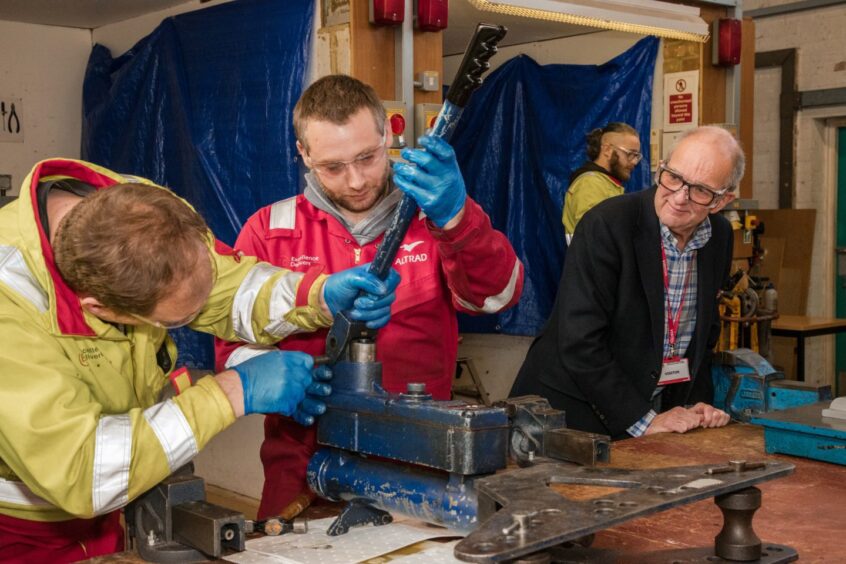The Engineering Construction Industry Training Board (ECITB) has announced a further £2 million investment in ‘skills hubs’ across the UK over the next two years.
It is directing funds towards “industrial cluster hot spots” such as the north-east of Scotland, Teesside and the Humber, Scotland, South Wales and the Solent.
This follows on from a previous £1m investment through the trade body’s Regional Skills Hub Funding initiative to increase training provider capacity and grow new entrant numbers into the engineering and construction industry (ECI) as it contends with skills shortages.
ECITB’s cash has already been directed to the Humber region, Teesside, the north-east of Scotland and the wider UK, the organisation explained, as it plans to announce further projects to receive backing “shortly”.
Andrew Hockey, CEO of ECITB, commented: “This extra investment will help further address skills shortages by enhancing training and assessment infrastructure and capabilities at both colleges and independent training providers located in Britain’s industrial heartlands that will directly increase the flow of trained workers into the industry.”
This comes soon after an ECITB report, which found the oil and gas workforce is older than other sectors, and it is unlikely that young people will fill the gap left by retirees.
 © Supplied by ECITB/ Dave Dodge
© Supplied by ECITB/ Dave DodgeThe ECITB recently worked with industry partners as part of the Net Zero Teesside cluster project, which received £478,000 funding last month.
The funding will contribute to an immersive pipefitting, welding, mechanical and project-based training rig and includes enhanced pipefitting facilities.
The joint venture between BP and Equinor recently faced criticism from MPs who claimed government investment of £21.7bn in “unproven technologies” was “risky”.
One of the first businesses to secure funds from the initial £1m pledged by ECITB was the Aberdeen-headquartered 3t.
The training provider used the £200,000 awarded in October to support building of three mobile training units. To date, two of the units have been deployed in the north-west of England.
The third unit is yet to hit the market, however, all three are designed to be deployed across the country.
3t is co-funding the project with £160,000 to build the units and an additional £120,000 a year towards running costs.
The trade body claimed that the units will bring “hundreds of new entrants to industry”, as they deliver ECITB-approved courses in mechanical fitting, pipefitting and plating.
 © Supplied by ECITB
© Supplied by ECITBHockey added: “Our Labour Forecasting Tool predicts that the ECI could need thousands of additional workers over the coming years for major projects, including those that contribute to the country’s net zero goals.
“Without a pipeline of trained, skilled workers all this risks not being achieved, which is why we are keen to work with more clients, contractors, training providers and industry partners to invest in growing the number of skilled workers needed for other major engineering construction projects now and in the future.”
The first of the firms to receive backing from the initiative was Humber-based training provider, CATCH.
The business was granted £300,000 in January last year to upgrade its existing welding, pipefitting and electrical training facilities in Stallingborough near Grimsby.
CATCH’s new Welding and Pipefitting Hub opened its doors in September and forms part of a joint venture with industry to increase learning capacity by 100% over two years.



















